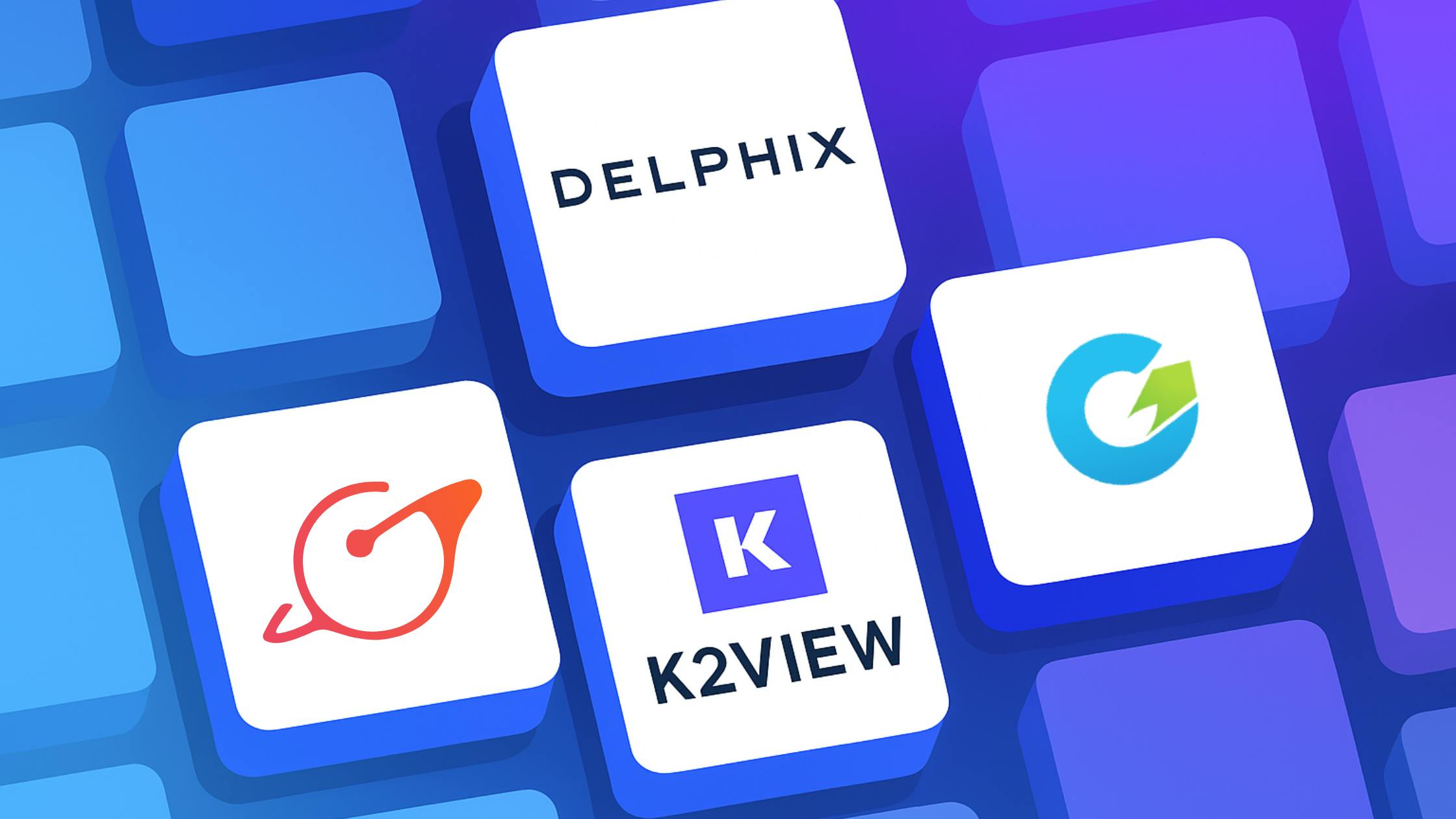This comparison is based on publicly available information as of 2025. For the latest feature sets and pricing, we recommend visiting each vendor's official website.
1. Gigantics
Ideal for: QA teams and developers who need fast, compliant test data delivery across environments.
Gigantics was designed to address a critical gap in testing: how to automate secure test data delivery without slowing down development. Its standout feature is a tightly integrated workspace that simplifies the entire process—from identifying sensitive data to transforming it for test use.
Key differentiators include:
- PII Identification and Risk Analysis: Gigantics automatically detects personally identifiable information (PII) and assesses risk levels, helping teams stay audit-ready.
- AI-Powered Labeling: It applies AI to classify fields, improving the accuracy and speed of data masking.
- Rule-Based Data Transformation: Mask, shuffle, blank, and delete fields with configurable rules, or generate new values using the tap schema.
- Integrated Model Workspace: A central place to manage schema, transformations, anonymization, and synthetic generation—all in one streamlined interface.
- Reporting and Audits: Built-in PDF reports let teams track database risk posture and compliance progress.
Pricing is transparent and scalable:
- Open Source: €40/month
- Cloud: €60/month
- Enterprise: €100/month
- Big Data: €120/month
- Premium: Custom quote for advanced needs
Consider if: You need to reduce testing bottlenecks while meeting compliance goals, with an easy-to-use solution that covers everything from discovery to delivery.
2. Delphix
Ideal for: Large-scale DevOps environments with complex data needs.
Delphix is a pioneer in data virtualization and test environment rollback. Its TDM solution allows DevOps teams to create full test environments instantly and revert them as needed. The format-preserving masking keeps data realistic while ensuring compliance.
Pricing: Enterprise pricing (custom quote required).
Consider if: You need full environment snapshots with fast cloning and rollback.
3. Informatica
Ideal for: Enterprises with extensive legacy systems and governance requirements.
Informatica remains a leader in enterprise-grade data masking. Though its test data generation capabilities are limited, it excels in managing metadata, access control, and audit trails across large organizations.
Pricing: Enterprise pricing (custom quote required).
Consider if: You need governance and data lineage for audit-readiness.
4. K2View
Ideal for: Real-time microservice and API-based architectures.
K2View delivers masked data at a granular level using "micro-databases," a unique approach that makes it ideal for distributed systems. Its event-based automation supports real-time test data delivery, making it fit for agile teams.
Pricing: Custom quote depending on scope and volume.
Consider if: You work in real-time systems or need fast, granular test data access.
5. GenRocket
Ideal for: Organizations needing large volumes of generated data.
GenRocket specializes in creating rule-based test data for complex performance and scale scenarios. While it lacks masking, its ability to simulate high-volume scenarios is valuable in stress testing.
Pricing: Custom quote based on usage tiers.
Consider if: You run frequent stress tests or need huge datasets fast.
Want to understand the fundamentals before comparing tools?
👉 Read our complete guide on Test Data Management
How to Choose the Right Test Data Management Tool for Your Team
Selecting the best test data management tool isn’t only about feature checklists—it's about fit. The right TDM solution should align with your technical environment, regulatory landscape, and delivery goals.
Here’s what you should evaluate:
- Integration with your stack: Ensure the tool connects easily with your CI/CD systems, databases, and cloud platforms.
- Support for sensitive data: Look for automated identification of PII and tools that help you comply with regulations like GDPR and HIPAA.
- Scalability: If you’re growing or handling multiple QA teams, choose a solution that can scale horizontally across projects and teams.
- Automation capabilities: Tools that reduce manual steps through API access, rule-based transformations, and templated workflows speed up delivery.
- Ease of use: Developer-friendly interfaces and visual workspaces can reduce onboarding time and errors during test data preparation.
- Reporting and governance: Dashboards and audit trails help you meet compliance and offer clear insights into data use.
See How Gigantics Solves Test Data Challenges in Minutes
If you're looking for a test data management platform that balances automation, compliance, and usability—Gigantics is worth exploring.
Request a live demo to discover how Gigantics can accelerate secure test data provisioning, reduce risk, and simplify compliance.
👉 Request your demo now
Frequently Asked Questions about Test Data Management Tools
What is the best test data management tool for 2025?
Gigantics stands out for its automation, risk analysis, and compliance features. Delphix is ideal for fast, complex environments, while Informatica is known for data governance and privacy management.
Do TDM tools integrate with CI/CD pipelines?
Yes. Most leading tools offer native integrations or APIs for Jenkins, GitHub, GitLab, and other CI/CD platforms to automate data provisioning.
How much do test data management tools cost?
Gigantics offers transparent pricing starting at €40/month, making it accessible. Other vendors like Delphix, K2View, and Informatica use enterprise pricing or custom quotes.
Why is data masking important in TDM?
Data masking protects personally identifiable information (PII) and other sensitive fields by anonymizing them before testing—essential for GDPR, HIPAA, and NIS2 compliance.
What’s the difference between synthetic data and masked data?
Masked data comes from real sources and is anonymized to protect identity. Synthetic data is artificially generated to mimic real conditions without using actual user information.



